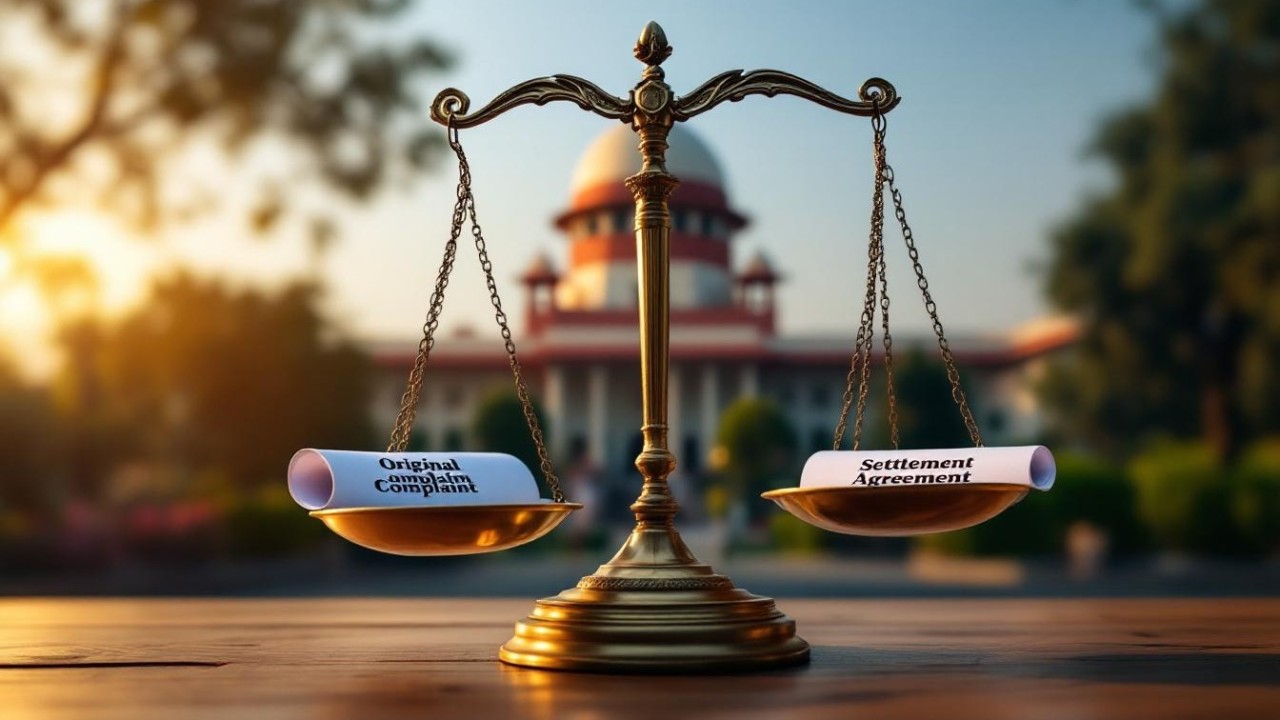A Landmark Judgment in Gimpex Private Limited v. Manoj Goel, Criminal Appeal Nos. 1068 & 1069–1075 of 2021 | Decided on 8 October 2021
🧑⚖️ Bench: Dr. Justice D.Y. Chandrachud, Justice Vikram Nath, and Justice B.V. Nagarathna 📌 Authored by: Dr. D.Y. Chandrachud, J.
🔍 Introduction: The Cheque Bounce Dilemma in India
India’s business and financial ecosystems rely heavily on cheques and promissory instruments. Section 138 of the Negotiable Instruments Act, 1881 was introduced as a quasi-criminal provision to enforce the sanctity of such instruments. However, the overuse — and at times misuse — of this provision has led to judicial overload, duplicative litigation, and a blurred line between civil liability and criminal prosecution.
In this context, the Supreme Court’s judgment in Gimpex Private Limited v. Manoj Goel is a pivotal decision that establishes a firm legal position on parallel criminal complaints arising from the same debt or transaction, both before and after a settlement agreement has been reached.
🧾 Case Snapshot: What Happened?
- Original Transaction: Gimpex Pvt. Ltd. entered into High Seas Sale Agreements (HSSAs) with Aanchal Cement Ltd. (ACL), paying over ₹15 crores in customs and wharfage charges.
- First Set of Cheques: ACL issued 18 cheques worth ₹50 lakhs each (total ₹9 crores), all of which were dishonored, leading to a complaint under Section 138 of the NI Act.
- Compromise Deed: In 2013, during the pendency of the complaint and FIR under Sections 409 and 506 of the IPC, ACL and Gimpex signed a Deed of Compromise, under which ACL paid ₹3 crores immediately and promised to pay the remaining ₹ seven crores through fresh cheques.
- Second Set of Cheques: These were also dishonored, resulting in a second complaint under Section 138 of the Negotiable Instruments Act.
- High Court Orders:
- Supreme Court: Both parties filed cross-appeals. The key question: Can two complaints stand for the same liability?
⚖️ Legal Question Framed by the Supreme Court
❝Can a complainant prosecute two separate complaints under Section 138 NI Act — one based on the original debt, and the second based on dishonor of post-settlement cheques — arising from the same commercial transaction?❞
🧠 Key Legal Principles Laid Down
1️⃣ No Dual Prosecutions from One Legal Liability
Once a compromise deed is executed, the earlier complaint based on the same liability must be quashed.
“A complainant cannot pursue two parallel prosecutions for the same underlying transaction.” – [Para 40]
The new set of cheques issued after the compromise represents a novated liability. If dishonoured, they create a fresh cause of action.
2️⃣ . Presumption of Liability Applies Even Post-Settlement
The presumption under Section 139 NI Act remains applicable to cheques issued under a compromise — unless rebutted at trial, not at the quashing stage under Section 482 CrPC.
“Once the ingredients of Section 138 are fulfilled, a distinct offence arises.” – [Para 48]
3️⃣ Settlements Must Mean Something
If courts allow the original complaint to proceed even after a compromise, it defeats the very purpose of settlement.
“Such interpretation would discourage settlement of matters... and increase protracted litigation.” – [Para 39]
The Court called this an unjust weaponization of the criminal process.
4️⃣ Compromise Must Be Respected — Until Declared Void
A compromise deed can only be ignored if declared void (e.g., due to coercion). Until then, it must be treated as binding.
“The deed of compromise would continue to be valid until a decree... setting it aside is passed.” – [Para 53]
🧾 What Did the Court Finally Decide?
✔️ Restored the second complaint (based on dishonour of post-compromise cheques) – to go to trial. ❌ Quashed the first complaint, as the compromise extinguished it. 📌 Preserved parties' rights – to raise all defenses at trial or challenge the compromise deed before a civil court.
🧩 Important Precedents Cited
- Meters & Instruments v. Kanchan Mehta (2018) – Encourages early compounding of offences under Section 138.
- Damodar S. Prabhu v. Sayed Babalal H. (2010) – Stresses on settlement and compensation over punishment.
- Arun Kumar v. Anita Mishra (2020) – The Second complaint is maintainable if a new cheque is dishonoured after a Lok Adalat compromise.
- Lalit Kumar Sharma v. State of UP (2008) – Not applicable if earlier complaint already led to conviction.
💼 Practical Implications for Stakeholders
✅ For Legal Teams & Lenders:
- Structure settlements carefully – Include language that waives the right to reinstate original complaints.
- Avoid filing multiple complaints – Focus on the breach of the compromise for a cleaner legal strategy.
✅ For Business & Banking Sector:
- Ensures contractual certainty and discourages misuse of cheque bounce cases to harass debtors after partial settlement.
✅ For Judicial System:
- A strong step toward reducing judicial backlog. According to the 213th Law Commission Report, over 35 lakh cheque bounce cases are pending.
📊 Policy Context: Why This Judgment Matters
This verdict comes amid a governmental push to decriminalize economic offenses, including Section 138 of the NI Act (Finance Ministry Proposal, June 2020), and a Supreme Court-mandated initiative to expedite trials of cheque bounce cases (Suo Motu Writ Petition Crl. No. 2/2020).
This decision:
- Reinforces that the settlement is final, not a bargaining chip.
- Limits the strategic misuse of criminal courts.
- Prioritizes judicial efficiency and commercial fairness.
🗣️ Final Word
“The law must balance the interests of justice and contractual faith. Once a party settles, it settles with open eyes. It cannot blow hot and cold.” — Dr. Justice D.Y. Chandrachud.
The Gimpex verdict ensures that the compensatory nature of Section 138 is respected. It provides legal clarity on the scope of liability after settlement and enhances commercial jurisprudence in India.

